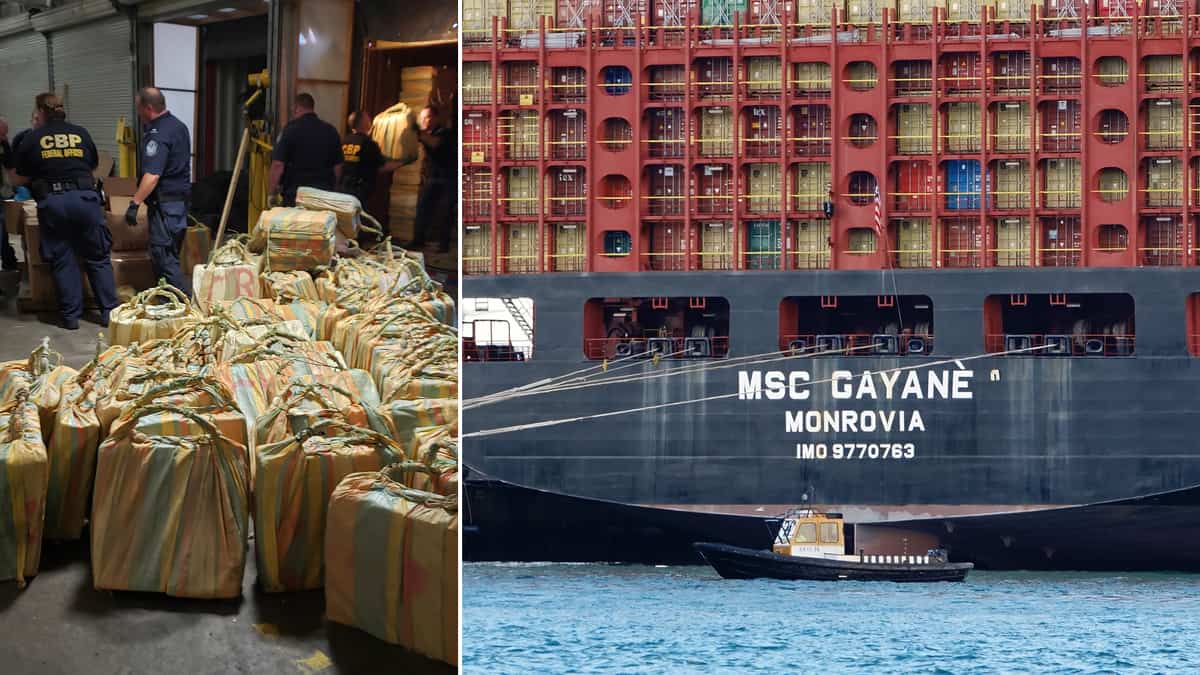Mediterranean Shipping Company (MSC) — which recently surpassed Maersk to become the world’s largest ocean carrier — confirmed it “suffered significant financial and reputational damage” from the record-breaking drug bust aboard its ship, the MSC Gayane, in 2019.
MSC detailed the extent of the consequences in a newly filed court document — consequences that include over $100 million in additional security costs. “The company and everyone in it are victims,” MSC wrote in a letter to U.S. District Court Judge Harvey Bartle III.
Stranger than fiction
The MSC Gayane drug-smuggling case calls to mind a quote from Mark Twain: “Truth is stranger than fiction.”
The ship at the center of the story was new, very large and very expensive. It was built in 2018, with a capacity of 11,600 twenty-foot equivalent units, valued at around $90 million, owned by an entity affiliated with JP Morgan and leased by MSC.
When U.S. authorities swarmed the ship in Philadelphia on June 17, 2019, they found almost 20 tons of cocaine worth over $1 billion hidden in seven shipping containers. That’s the same weight in cocaine as three adult male African elephants.
Of the ship’s crew of just over 20, at least eight — around a third of the crew — were involved in the drug ring, according to prosecutors. Four crew members from Montenegro led the operation, taking jobs on the ship with the intent to smuggle cocaine. They recruited at least four other crew members.
Speedboats met the MSC Gayane at night off South America on multiple occasions. During a September court hearing, a prosecutor said, “Crew members used the vessel’s crane to hoist cargo nets full of cocaine onto the vessel and then stashed the cocaine in the vessel’s shipping containers. After hiding cocaine among legitimate cargo, the crew members used fake seals to reseal the containers.”
To date, three co-conspirators have pleaded guilty: Vladimir Penda, who served as fourth engineer on the ship; engineer Nenad Ilic; and Aleksandar Kavaja, an electrician. All face up to life in prison.
The sentencing hearings for all three are imminent. MSC filed its letter in preparation for Penda’s hearing, originally scheduled for Monday but pushed back to April 13.
$100M+ in new security measures
MSC asserted to the judge that it had robust anti-smuggling procedures in place for years before the MSC Gayane incident. But it also confirmed that it has made big changes since then.
“Over the past two years since the Gayane seizure, MSC has spent tens of millions of dollars to enhance its anti-smuggling procedures,” it said.
It has “expanded deployment on MSC vessels of teams of security guards and CCTV cameras monitored remotely in real time by third-party security specialists.” Canine units and diver-team inspections are routine, “particularly in higher-risk areas like South America.”
The liner company is also pushing ahead with “expedited development and rollout of smart containers that can sense and issue an alert if someone breaches or tampers with the container.”
“In total, MSC’s post-Gayane security enhancements are projected to cost more than $100 million from 2019 through 2024,” it disclosed.
An ‘unwanted and undeserved stain’
After the June 2019 drug bust, MSC was suspended for 90 days from the Customs and Border Protection (CBP) “trusted trader” C-TPAT program.
The U.S. government also targeted the MSC Gayane with a forfeiture action. To release the ship, MSC placed $10 million in a CBP security account and provided CBP with a $40 million surety bond. It agreed to disclose everything it knew about any criminal conduct of its employees related to the smuggling incident, facilitate any interviews with MSC employees by U.S. authorities, and assist with serving subpoenas on any MSC employees inside or outside the U.S.
MSC told the judge in its new filing, “Given all of MSC’s efforts to … prevent drug smuggling, you will understand how distressed and upset all of MSC’s 27,000-plus employees and crew are — and also, in particular, the [Aponte] family that continues to own MSC — to have their over 50 years of work building the company … undermined by the criminal conspiracy. The Gayane incident is an unwanted and undeserved stain on their record.” Click for more FreightWaves/American Shipper articles by Greg Miller
MORE ON DRUG SMUGGLING BY SEA: Legal vice tightens around MSC Gayane drug gang: see story here. Cracking the case of containerized cocaine: see story here. Drugs at sea: more coke plus more ships equals more problems: see story here.












kamir bouchareb st
very good